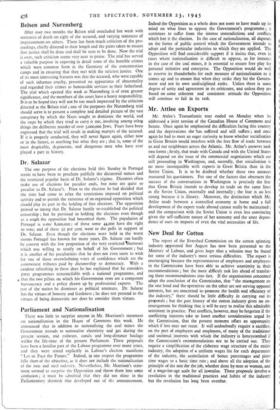Mr. Attlee on Exports Mr. Attlee's Transatlantic tour ended on
Monday when he addressed a joint session of the Canadian House of Commons and Senate. Once again he emphasised the difficulties facing this country and the. deprivations she has suffered and still suffers ; and once again he had to meet an eager curiosity to know whether socialisation in Great Britain would interfere with the free flow of trade between us and our neighbours across the Atlantic. Mr. Attlee's answers took two forms ; firstly, that trade with Canada and with the United States will depend on the issue of the commercial negotiations which •are still proceeding in Washington, and, secondly, that socialisation is no more incompatible with exports in Great Britain than in the Soviet Union. It is to be doubted whether these two answers reassured his questioners. For one of the factors that obstructs the success of the conversations in Washington is precisely the fear that Great Britain intends to develop its trade on the same lines as tfie Soviet Union, externally and internally ; the fear is no less strong because it is illusory. Moreover, the distinction which Mr. Attlee made between a controlled economy at home and a full development of the export trade abroad cannot really be maintained ; and the comparison with the Soviet Union is even less convincing given the self-sufficient nature of her economy and the utter depen- dence of ours on imports of even the vital necessities of life.


























 Previous page
Previous page